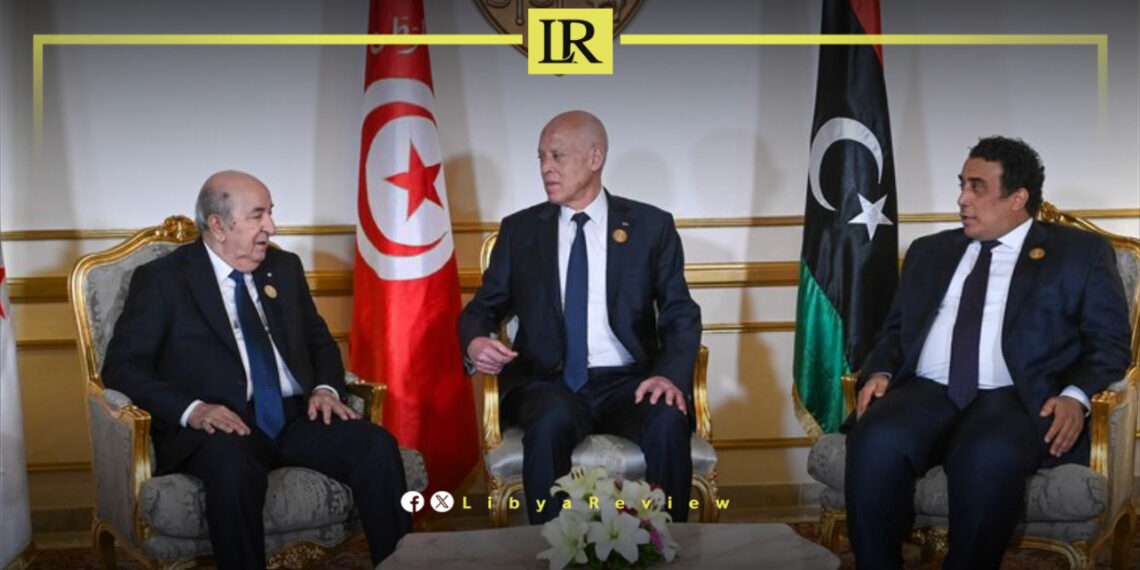Libya is set to host a significant trilateral summit with Tunisian President Kais Saied and Algerian President Abdelmadjid Tebboune, as part of an Algerian-led initiative to establish a new regional alliance. Mohamed Al-Mnifi, head of Libya’s Presidential Council, will lead the Libyan side in this effort, which aims to enhance cooperation between the three countries.
The summit, expected to take place in the coming days, reflects Libya’s growing role in regional diplomacy as it seeks to stabilize its political landscape and rebuild international partnerships. The announcement of the meeting came during Al-Mnifi’s recent visit to Algeria, where he and President Tebboune confirmed plans for this new alignment during a joint press conference.
Although officials emphasize that the bloc will focus on shared security concerns—such as border control, counterterrorism, and migration—analysts suggest the exclusion of Morocco and Mauritania could reshape regional dynamics.
Algeria’s initiative reflects a shift toward closer cooperation between Libya, Tunisia, and Algeria, forming an alliance that seeks greater autonomy from the broader Maghreb Union, which has long been paralyzed by political tensions.
For Libya, this initiative offers a valuable opportunity to reassert itself on the regional stage and align with neighbors who share similar security priorities. Al-Mnifi stressed that Libya hopes these meetings will evolve into a regular framework for collaboration through summits and specialized committees.
As Libya grapples with ongoing internal challenges—including the need for elections and political reconciliation—stronger ties with Algeria and Tunisia could provide crucial support in maintaining border security and tackling regional instability.
The exclusion of Morocco and Mauritania, however, has raised questions. While Libyan officials insist that the alliance is not directed against any country, some analysts see the move as part of Algeria’s broader effort to isolate Morocco diplomatically amid long-standing tensions, especially over the Western Sahara issue.
Libya’s participation in the bloc comes at a critical time. With political divisions and the need for elections still unresolved, engaging in regional initiatives allows Libya to rebuild trust with its neighbors and stabilize areas along its borders.


